Women left behind: Gender gap emerges in Africa’s vaccines
As health officials in Gambia and across Africa urge women to be vaccinated, they’ve confronted unwillingness among those of childbearing age. Many women worry that current or future pregnancies will be threatened, and in Africa, the success of a woman’s marriage often depends on the number of children she bears. Other women say they’re simply more afraid of the vaccine than the virus: As breadwinners, they can’t miss a day of work if side effects such as fatigue and fever briefly sideline them.
“I definitely need a lot of children,” said Lama Mballow, 24, who has a 4-year-old son, another child on the way and no plans to get vaccinated after giving birth. And Fatoumata Mballow, 29, struggling to get pregnant for a third time in a village where some women have as many as 10 children, quietly insists: “I don’t want to make it worse and destroy my womb.”
Their fears are hardly exceptional, with rumors proliferating across Africa, where fewer than 4% of the population is immunized. Although data on gender breakdown of vaccine distribution are lacking globally, experts see a growing number of women in Africa’s poorest countries consistently missing out on vaccines. Officials who already bemoan the inequity of vaccine distribution between rich and poor nations now fear that the stark gender disparity means African women are the least vaccinated population in the world.
This story is funded by the European Journalism Centre’s European Development Journalism Grants program, which is supported by the Bill & Melinda Gates Foundation. AP is responsible for all content.
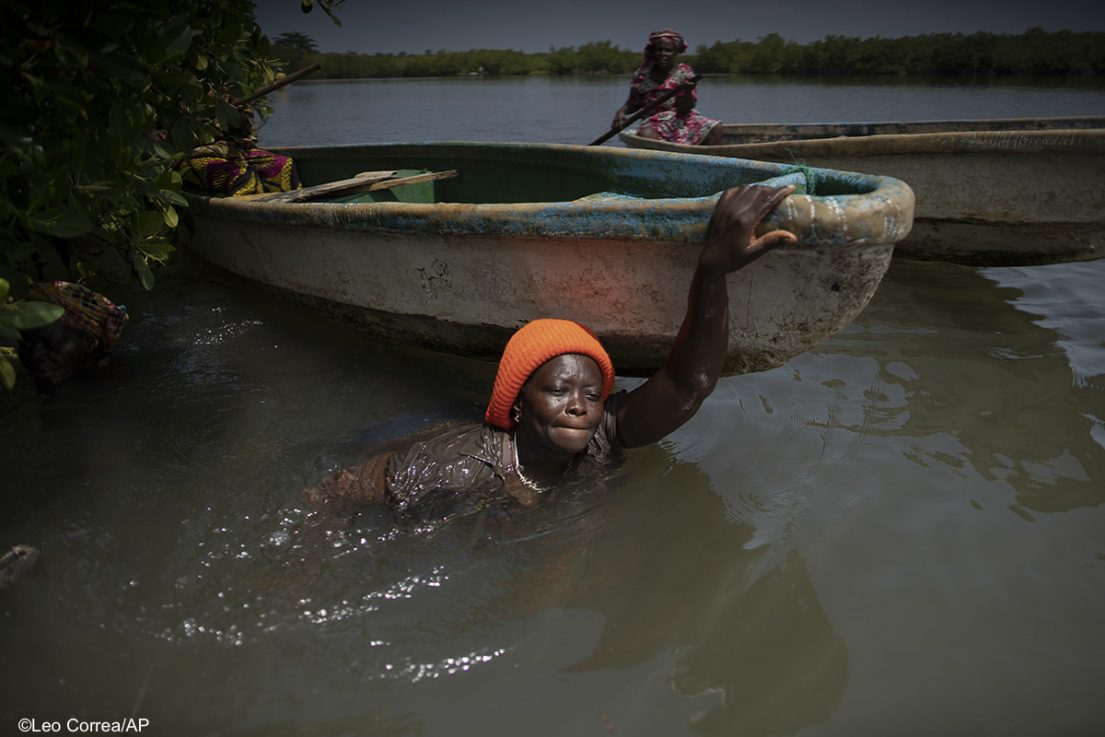
Rose Jatta pulls her boat into the estuary waters as she looks for fish traps she had set up earlier in the mangrove of the Gambia river in Serrekunda, Gambia, Saturday, Sept. 25, 2021. As health officials in Gambia and across Africa urge women to be vaccinated, they've confronted hesitancy among those of childbearing age. Although data on gender breakdown of vaccine distribution are lacking globally, experts see a growing number of women in Africa's poorest countries consistently missing out on vaccines. Jatta fears the vaccine against COVID-19 could make her ill, leaving her two children without food on the dinner table. (AP Photo/Leo Correa)
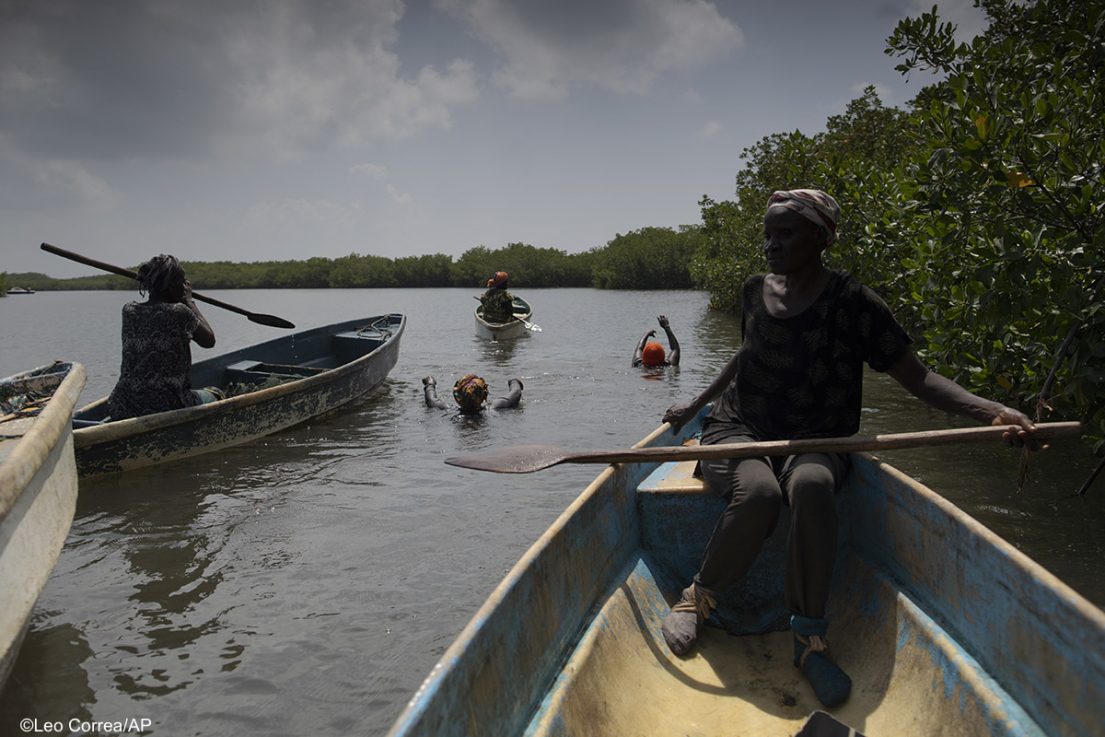
Fatou Jatta, right, holds her paddle as she works with her colleagues to catch fish and crabs from the mangrove in the estuary waters of the Gambia river in Serrekunda, Gambia, Saturday, Sept. 25, 2021. Depending on the season, women from the TRY Oyster Women's Association spend hours on the water in search of their family's dinner. As breadwinners, they can't miss a day of work and taking care of their children if side effects such as fatigue and fever briefly sideline them. Their fears are hardly exceptional, with similar hesitancies and vaccine rumors proliferating across Africa, where fewer than 4% of the population is immunized. (AP Photo/Leo Correa)
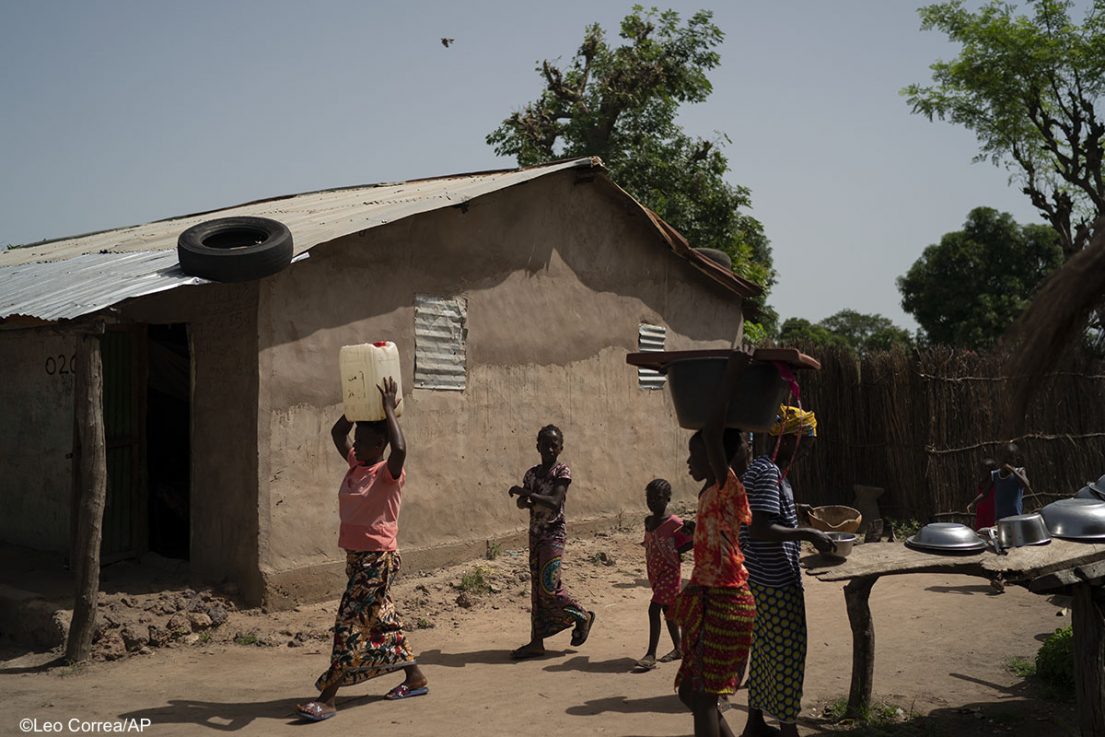
Lama Mballow carries a gallon of water collect from a local well at the Sare Gibel village in Bansang, Gambia, Wednesday, Sept. 29, 2021. Mballow, who has a 4-year-old son and another child on the way, has no plans to get vaccinated after giving birth. The persistent rumor that COVID-19 vaccines affect fertility has been especially troublesome in predominantly Muslim countries like Gambia and Somalia were polygamy is common. (AP Photo/Leo Correa)
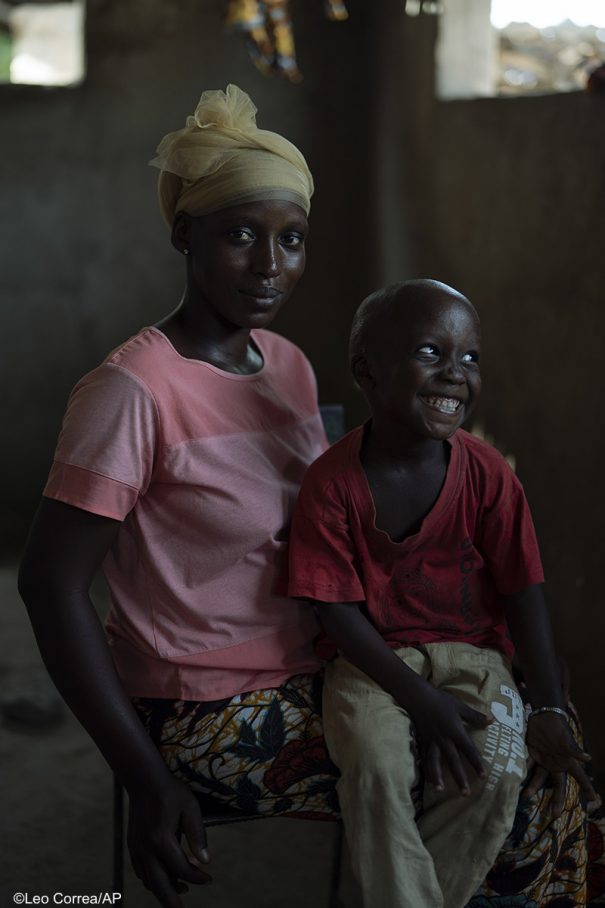
Lama Mballow poses for the photo with her 4-year-old son Ebrima in their house at the Sare Gibel village in Bansang, Gambia, Wednesday, Sept. 29, 2021. “I definitely need a lot of children,” says 24-year-old Mballow, who has another child on the way and no plans to get vaccinated after giving birth. The persistent rumor that COVID-19 vaccines affect fertility has been especially troublesome in predominantly Muslim countries like Gambia and Somalia were polygamy is common. (AP Photo/Leo Correa)
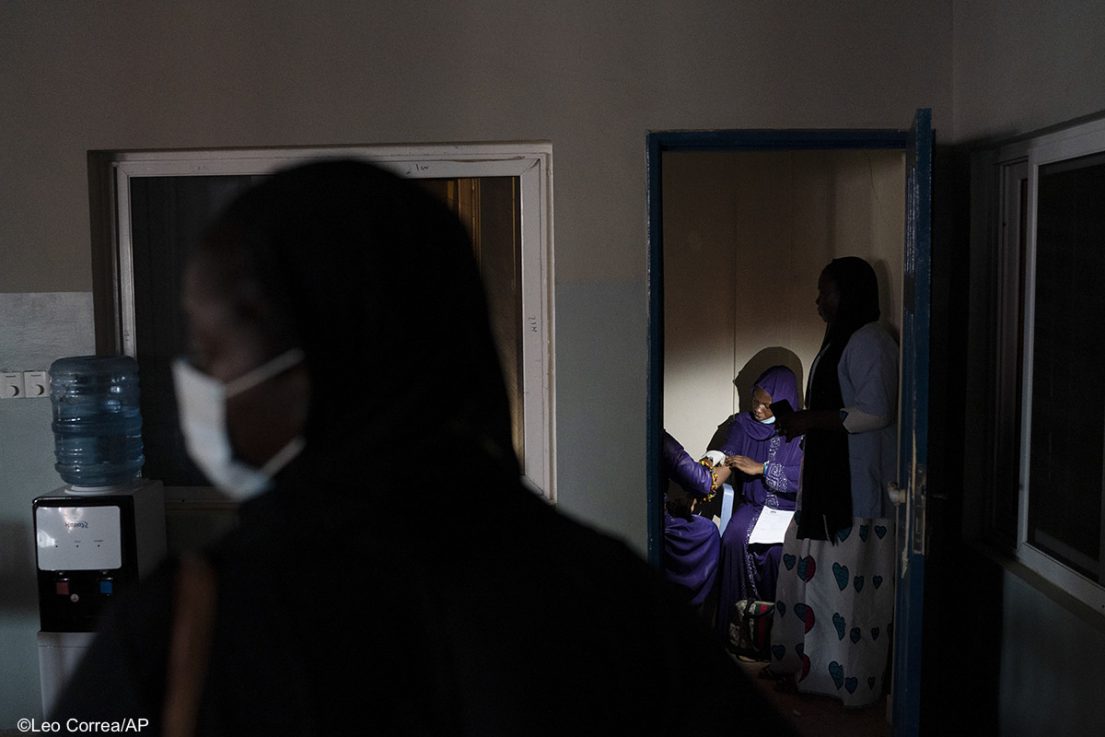
Lit by a mobile phone, a pregnant woman is assisted at the Bundung Maternal and Child Health Hospital in Serrekunda, outskirts of Banjul, Gambia, Friday, Sept. 24, 2021. As health officials in Gambia and across Africa urge women to be vaccinated, they've confronted hesitancy among those of childbearing age. Although data on gender breakdown of vaccine distribution are lacking globally, experts see a growing number of women in Africa's poorest countries consistently missing out on vaccines. (AP Photo/Leo Correa)
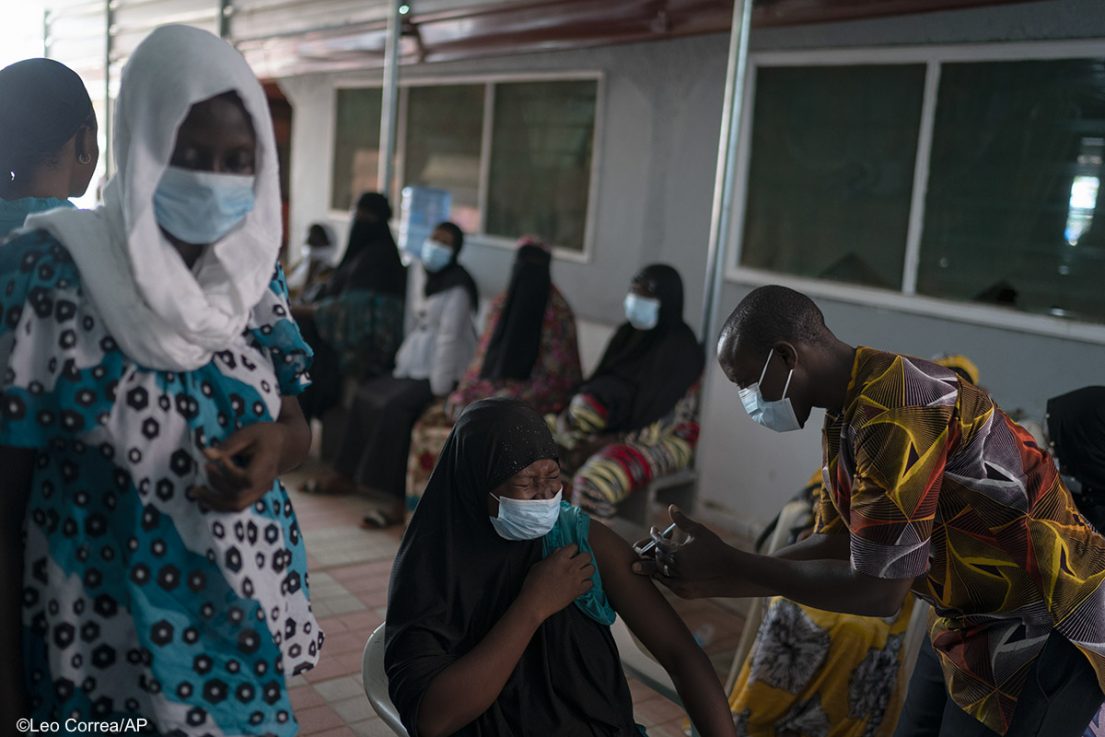
A health worker administers a dose of Janssen COVID-19 vaccine at the Bundung Maternal and Child Health Hospital in Serrekunda, outskirts of Banjul, Gambia, Thursday, Sept. 23, 2021. As Gambian health officials urge women to be vaccinated against COVID-19, they've confronted a strong hesitancy among those of childbearing age, many citing worries that current or future pregnancies will be threatened in a country where the success of a woman’s marriage often depends on the number of children she bears. (AP Photo/Leo Correa)
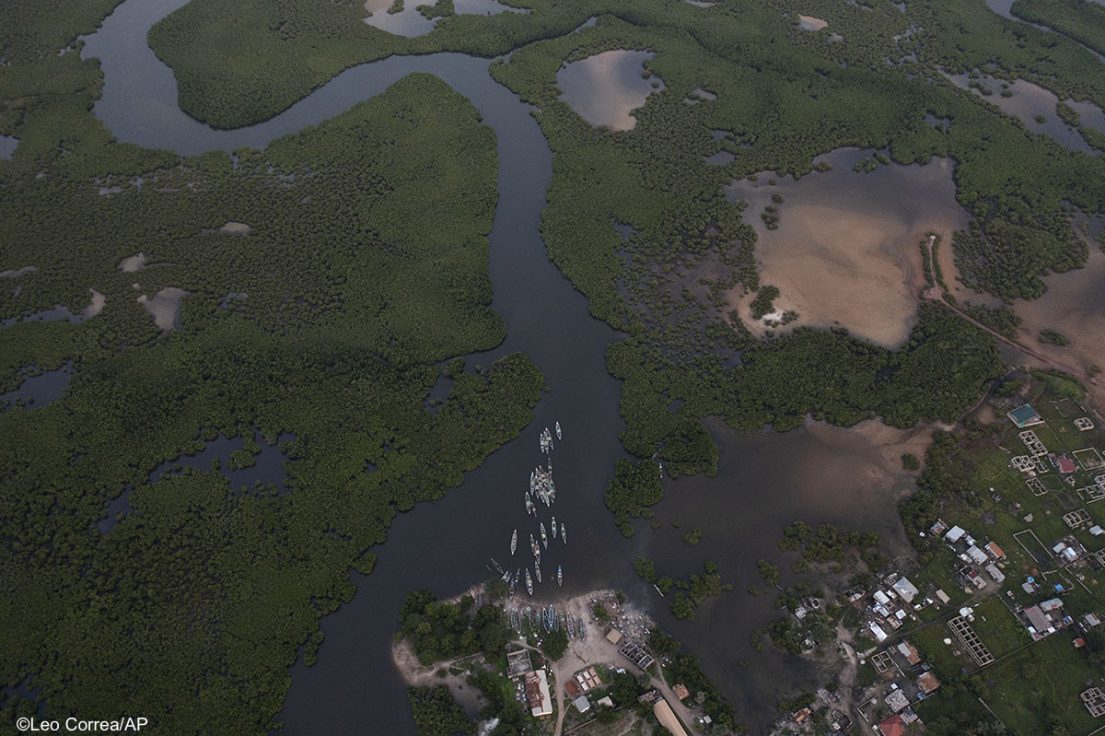
Traditional boats, known as pirogues, are seen docked in the estuary waters of the Gambia river at a fishermen village in Serrekunda, Gambia, Sunday, Oct. 3, 2021. As health officials in Gambia and across Africa urge women to be vaccinated, they've confronted hesitancy among those of childbearing age. Although data on gender breakdown of vaccine distribution are lacking globally, experts see a growing number of women in Africa's poorest countries consistently missing out on vaccines. (AP Photo/Leo Correa)
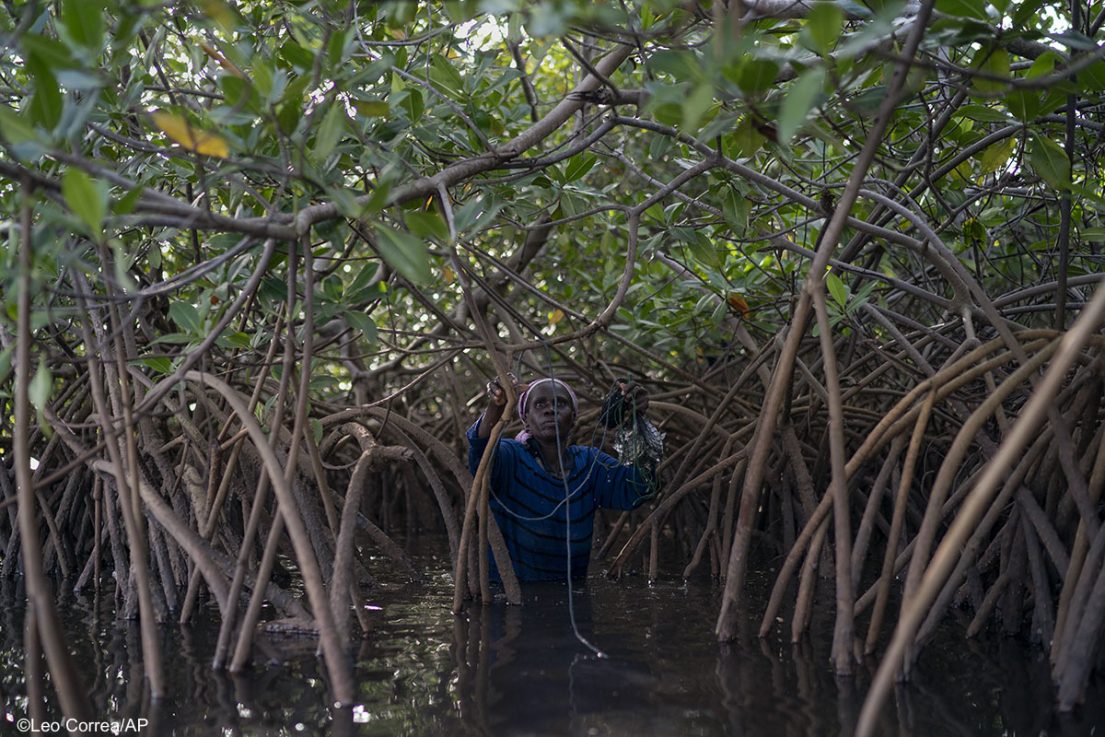
Lucy Jarju pulls her catch in the mangrove of the Gambia river in Serrekunda, Gambia, Sunday, Oct. 3, 2021. As health officials in Gambia and across Africa urge women to be vaccinated, they've confronted hesitancy among those of childbearing age. Although data on gender breakdown of vaccine distribution are lacking globally, experts see a growing number of women in Africa's poorest countries consistently missing out on vaccines. Jarju, 53, says she isn't willing to be vaccinated as side effects might stop her from working, even a day. (AP Photo/Leo Correa)
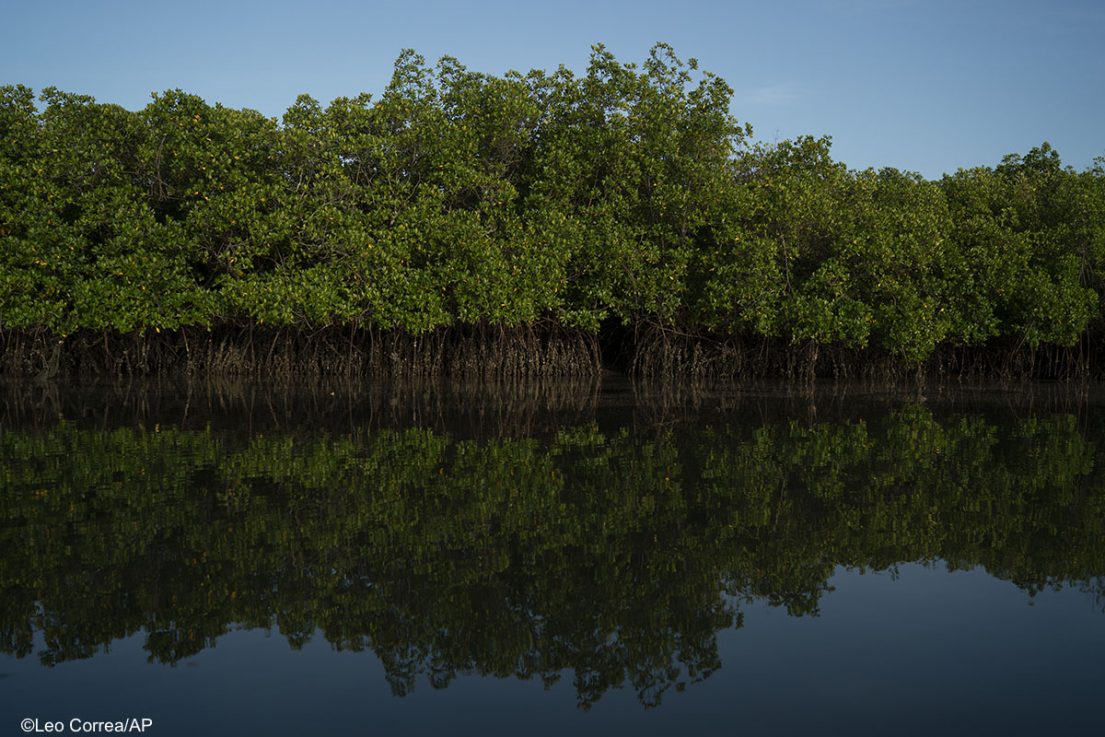
The low tide of the estuary exposes growing oyster in the mangrove of the Gambia river in Serrekunda, Gambia, Sunday, Sept. 26, 2021. As health officials in Gambia and across Africa urge women to be vaccinated, they've confronted hesitancy among those of childbearing age. Although data on gender breakdown of vaccine distribution are lacking globally, experts see a growing number of women in Africa's poorest countries consistently missing out on vaccines. (AP Photo/Leo Correa)
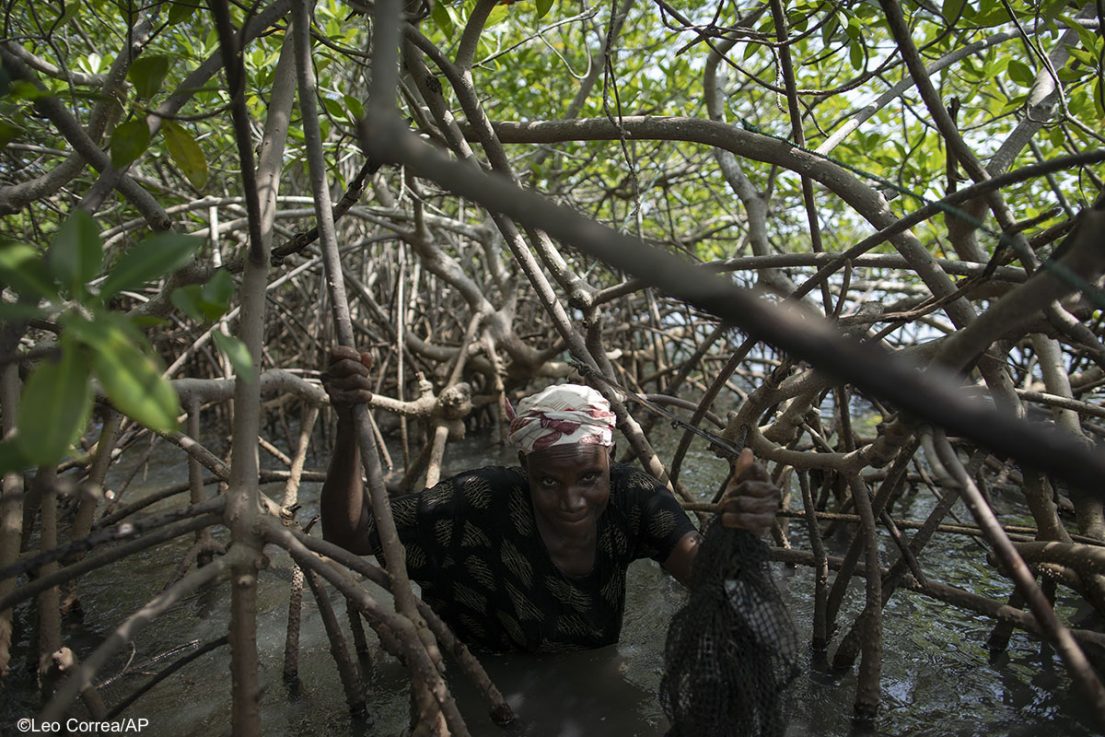
Fatou Jatta holds her catch as she walks in the mangrove at the estuary waters of the Gambia river in Serrekunda, Gambia, Saturday, Sept. 25, 2021. Afraid of the vaccine against COVID-19, Jatta, 66- year-old, says that “some people will take it and will have more problems in their bodies”. As breadwinners, they can’t miss a day of work and taking care of their children if side effects such as fatigue and fever briefly sideline them. Their fears are hardly exceptional, with similar hesitancies and vaccine rumors proliferating across Africa, where fewer than 4% of the population is immunized. (AP Photo/Leo Correa)
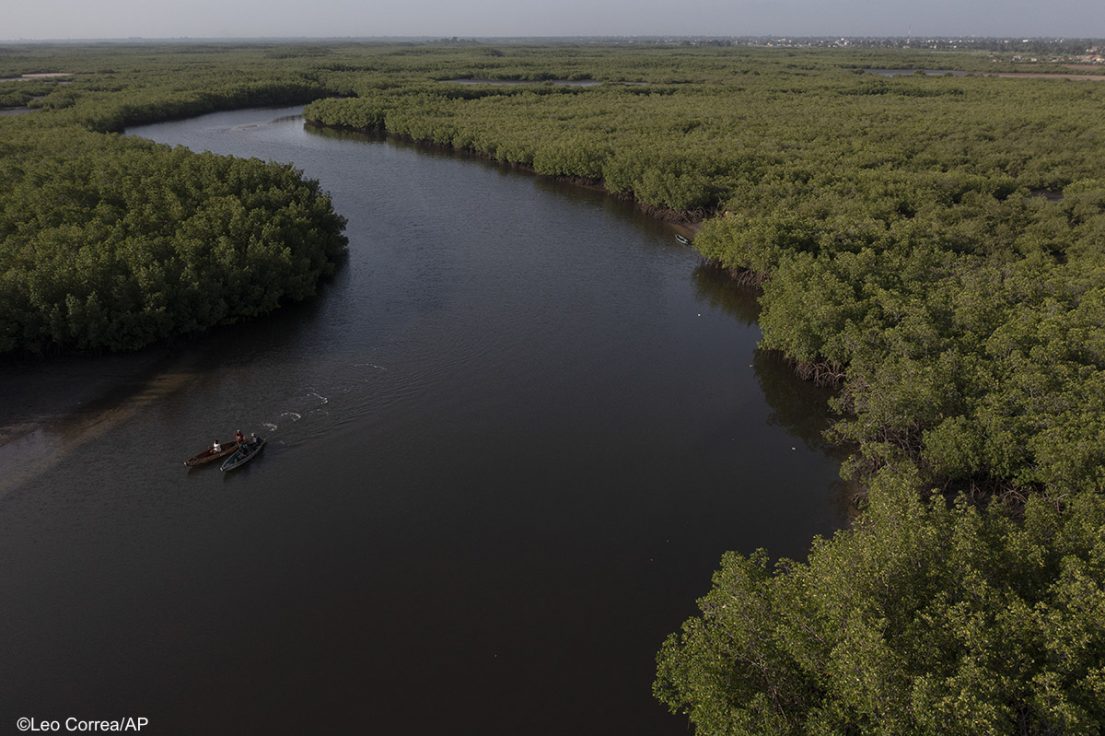
Women from the TRY Oyster Women's Association ride their little boats on the estuary waters of Gambia river in Serrekunda, Gambia, Monday, Sept. 27, 2021. As health officials in Gambia and across Africa urge women to be vaccinated, they've confronted hesitancy among those of childbearing age. Although data on gender breakdown of vaccine distribution are lacking globally, experts see a growing number of women in Africa's poorest countries consistently missing out on vaccines. (AP Photo/Leo Correa)
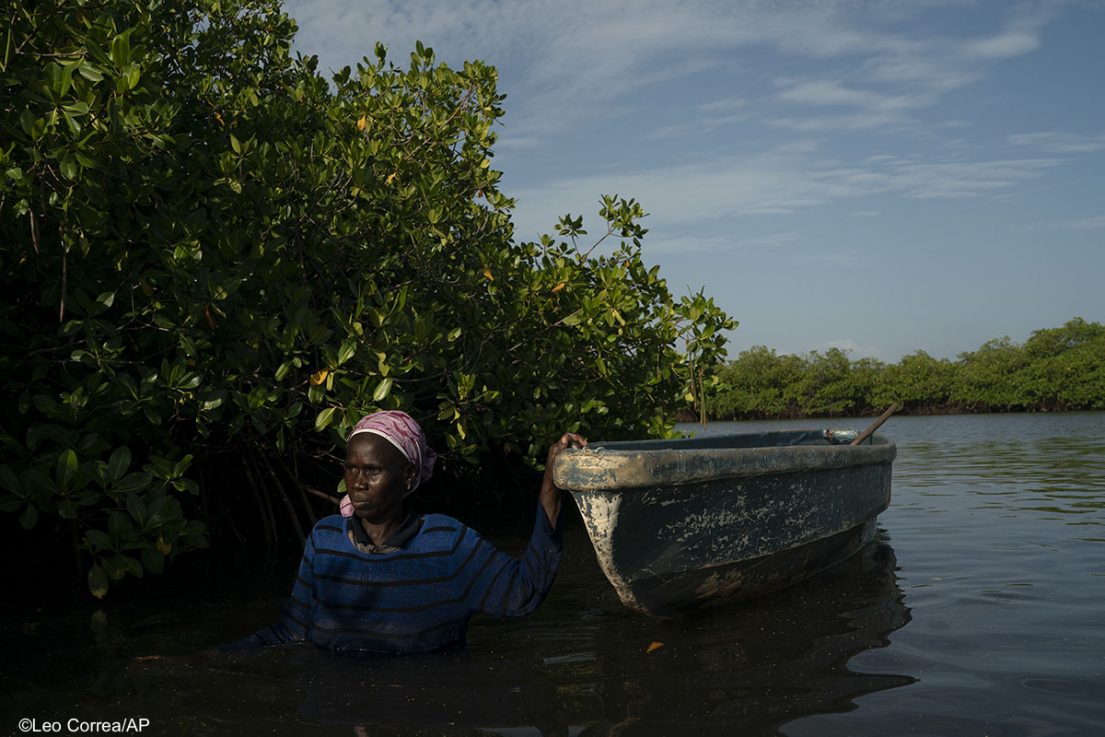
Lucy Jarju pulls her boat into the estuary waters as she looks for fish traps she had set up earlier in the mangrove of the Gambia river in Serrekunda, Gambia, Sunday, Oct. 3, 2021. As health officials in Gambia and across Africa urge women to be vaccinated, they've confronted hesitancy among those of childbearing age. Although data on gender breakdown of vaccine distribution are lacking globally, experts see a growing number of women in Africa's poorest countries consistently missing out on vaccines. Jarju, 53, says she isn't willing to be vaccinated as side effects might stop her from working, even a day. (AP Photo/Leo Correa)
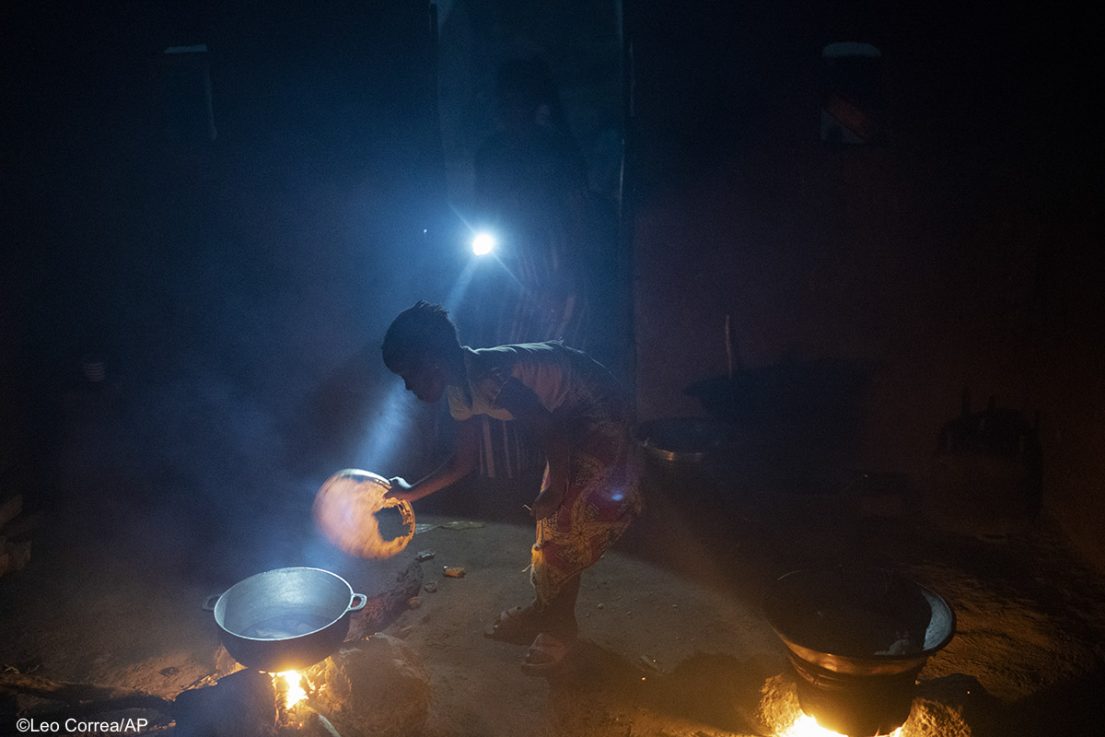
Lighted by a flashlight, a girl stokes the fire as the food is prepared in a compound at the Sare Gibel village in Bansang, Gambia, Wednesday, Sept. 29, 2021. As health officials in Gambia and across Africa urge women to be vaccinated, they've confronted hesitancy among those of childbearing age. Although data on gender breakdown of vaccine distribution are lacking globally, experts see a growing number of women in Africa's poorest countries consistently missing out on vaccines. (AP Photo/Leo Correa)
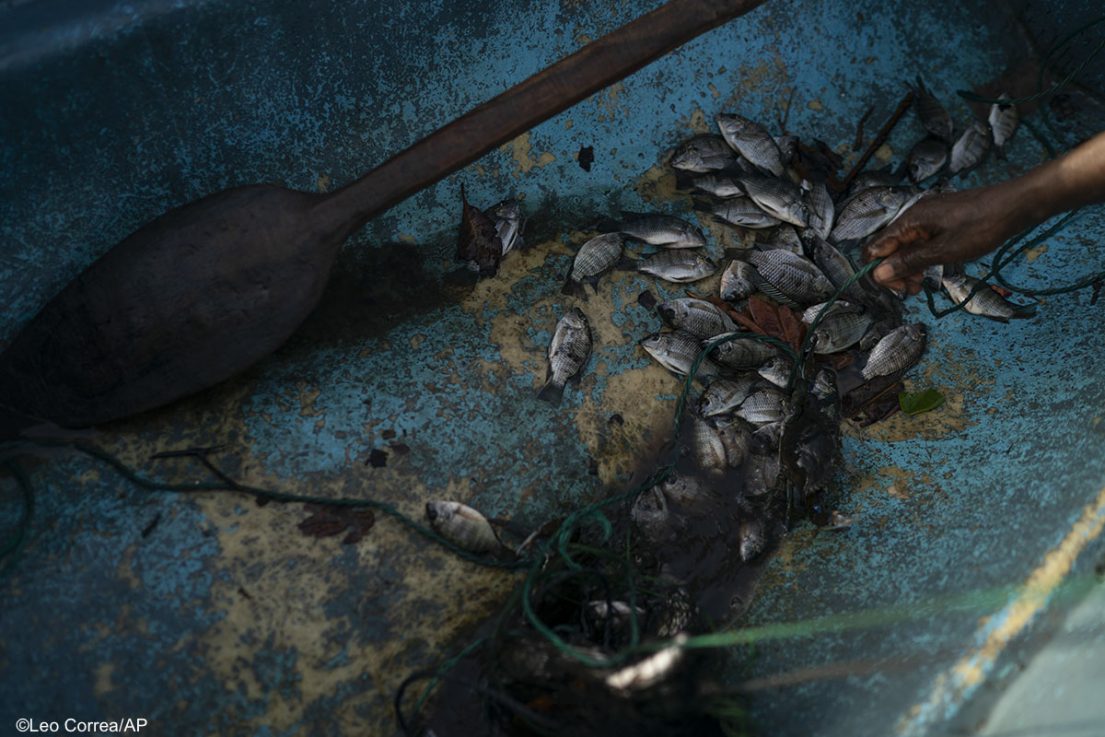
Fish caught by Lucy Jarju sits on the bottom of her boat in the estuary waters of the Gambia river in Serrekunda, Gambia, Saturday, Sept. 25, 2021. Afraid of the COVID-19 vaccine, Jarju said: "If my arm gets heavy and I can't go to the water, who will feed my children?" Their fears are hardly exceptional, with similar hesitancies and vaccine rumors proliferating across Africa. (AP Photo/Leo Correa)
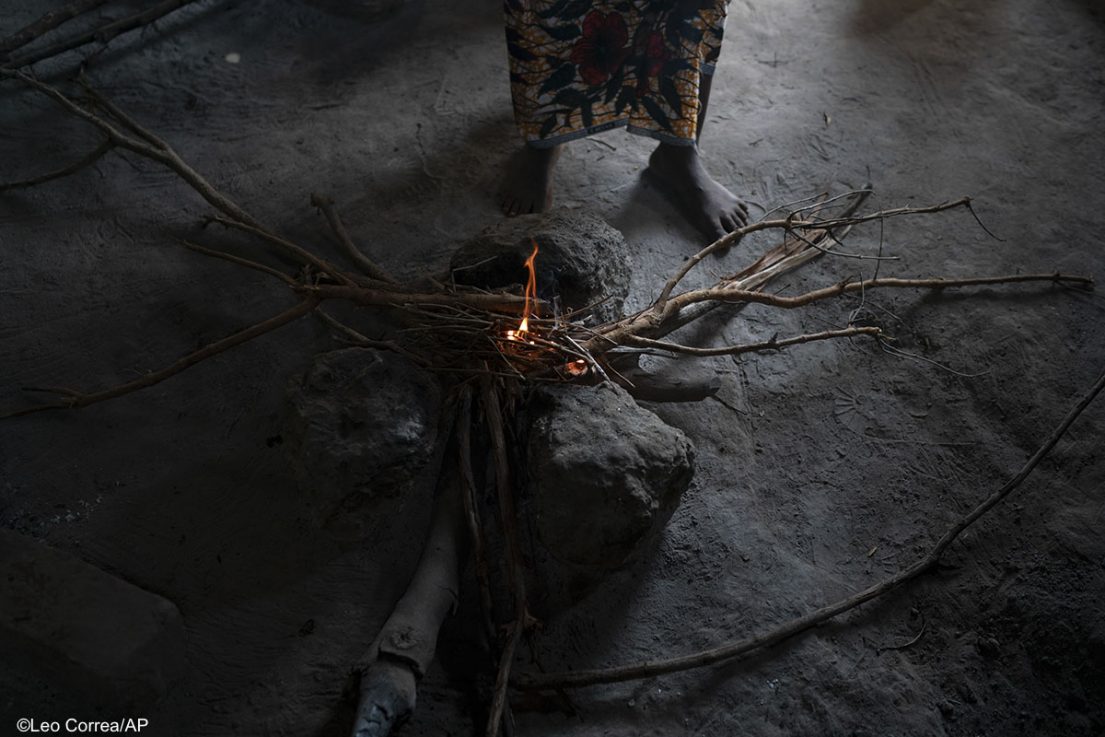
Lama Mballow stands next to the fire before cooking rice in her home in Bansang, Gambia, Wednesday, Sept. 29, 2021. Mballow, who has a 4-year-old son and another child on the way, has no plans to get vaccinated after giving birth. The persistent rumor that COVID-19 vaccines affect fertility has been especially troublesome in predominantly Muslim countries like Gambia and Somalia were polygamy is common. (AP Photo/Leo Correa)
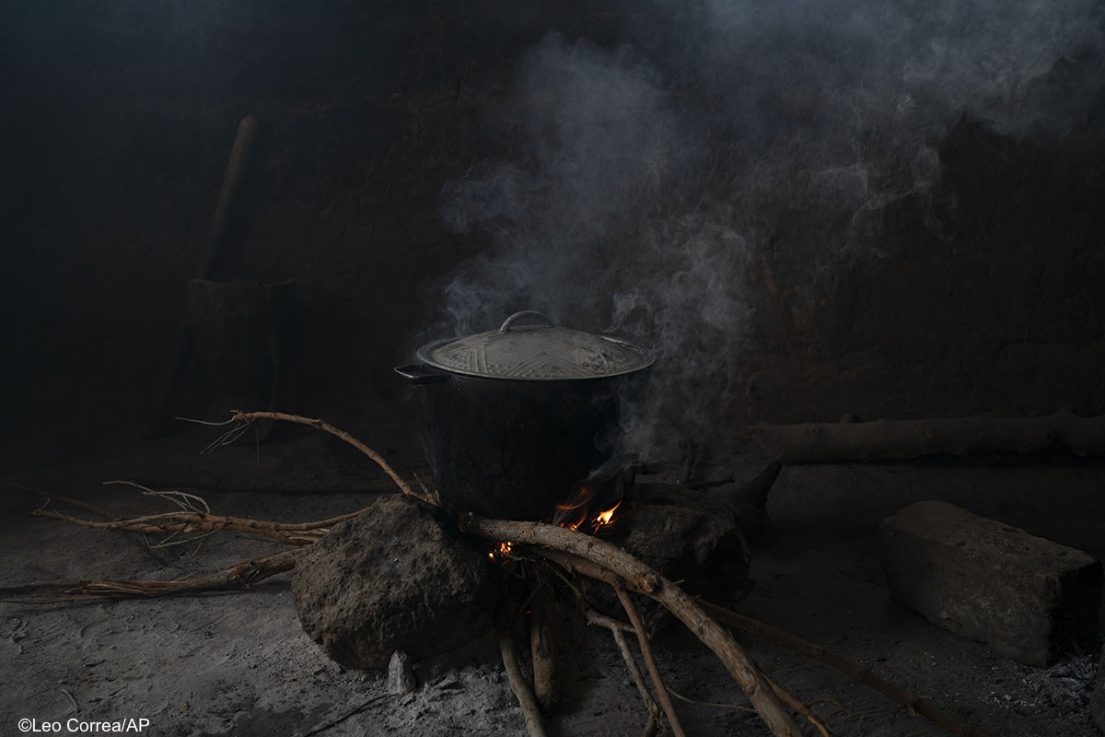
A pot sits on the fire as rice is prepared for lunch in the compound where Lama Mballow lives in Sare Gibel village, Bansang, Gambia, Wednesday, Sept. 29, 2021. “I definitely need a lot of children,” says 24-year-old Mballow, who has a 4-year-old son and another child on the way and no plans to get vaccinated after giving birth. The persistent rumor that COVID-19 vaccines affect fertility has been especially troublesome in predominantly Muslim countries like Gambia and Somalia were polygamy is common. (AP Photo/Leo Correa)
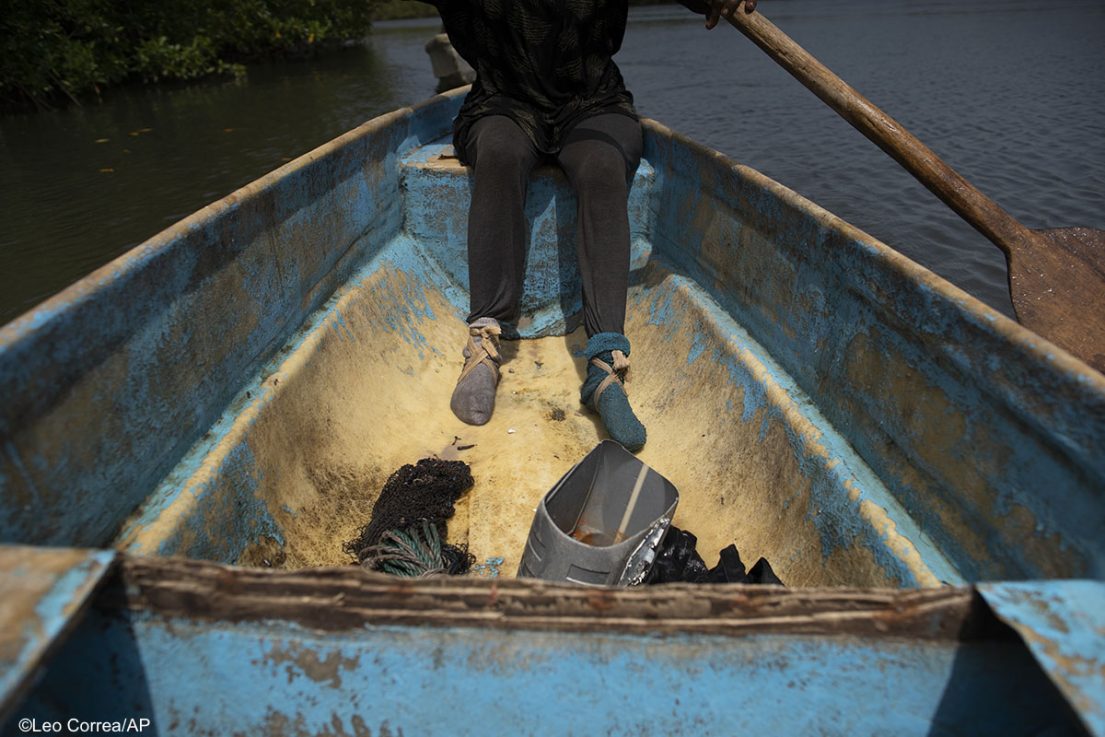
Wearing socks to protect her feet when walking in the mangrove, Fatou Jatta, paddles in the estuary waters of the Gambia river in Serrekunda, Gambia, Saturday, Sept. 25, 2021. Afraid of the COVID-19 vaccine, Jatta, 66, says that “some people will take it and will have more problems in their bodies”. Their fears are hardly exceptional, with similar hesitancies and vaccine rumor proliferating across Africa. (AP Photo/Leo Correa)
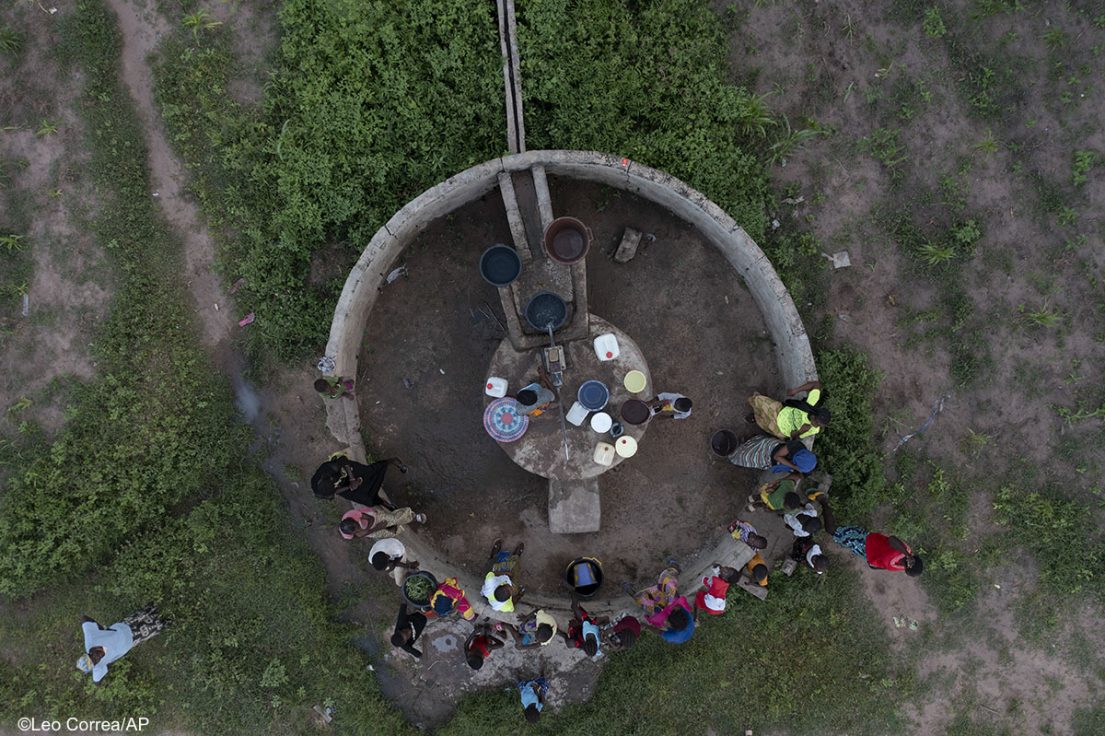
Young women gather to collect water from a community well at the Sare Gibel village, Bansang, Gambia, Wednesday, Sept. 29, 2021. As health officials in Gambia and across Africa urge women to be vaccinated, they've confronted hesitancy among those of childbearing age. Although data on gender breakdown of vaccine distribution are lacking globally, experts see a growing number of women in Africa's poorest countries consistently missing out on vaccines. (AP Photo/Leo Correa)
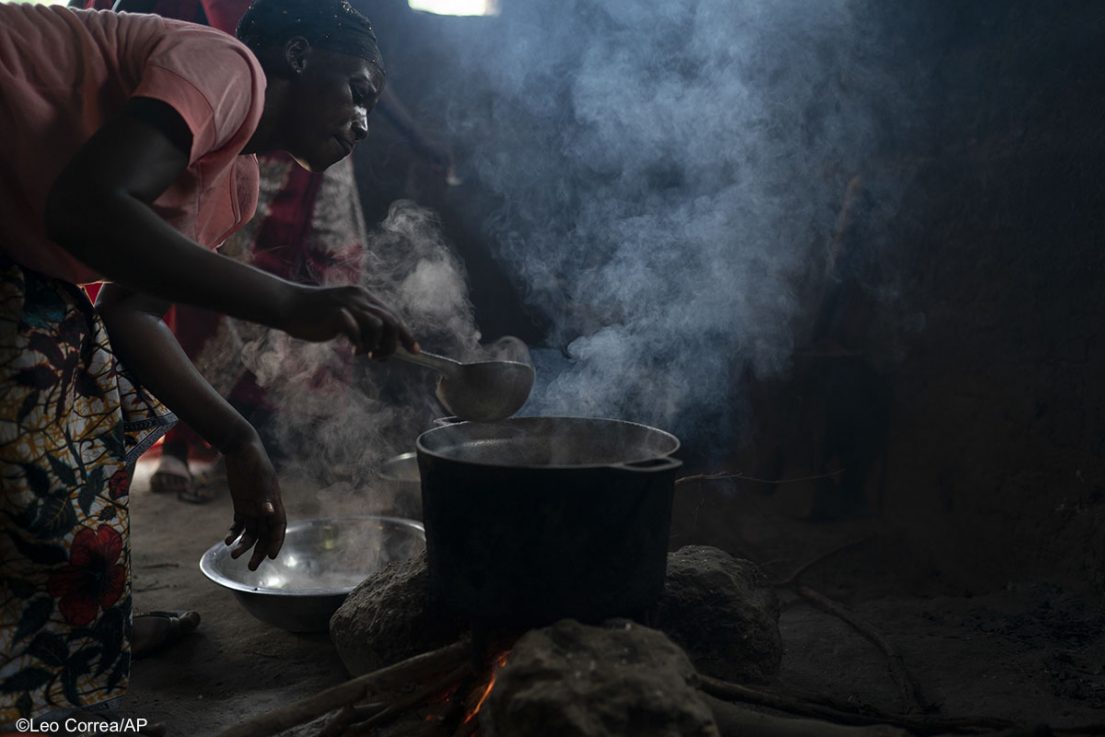
Lama Mballow cooks rice for lunch at the compound where she lives in the Sare Gibel village in Bansang, Gambia, Wednesday, Sept. 29, 2021. “I definitely need a lot of children,” says 24-year-old Mballow, who has a 4-year-old son and another child on the way and no plans to get vaccinated after giving birth. The persistent rumor that COVID-19 vaccines affect fertility has been especially troublesome in predominantly Muslim countries like Gambia and Somalia were polygamy is common. (AP Photo/Leo Correa)
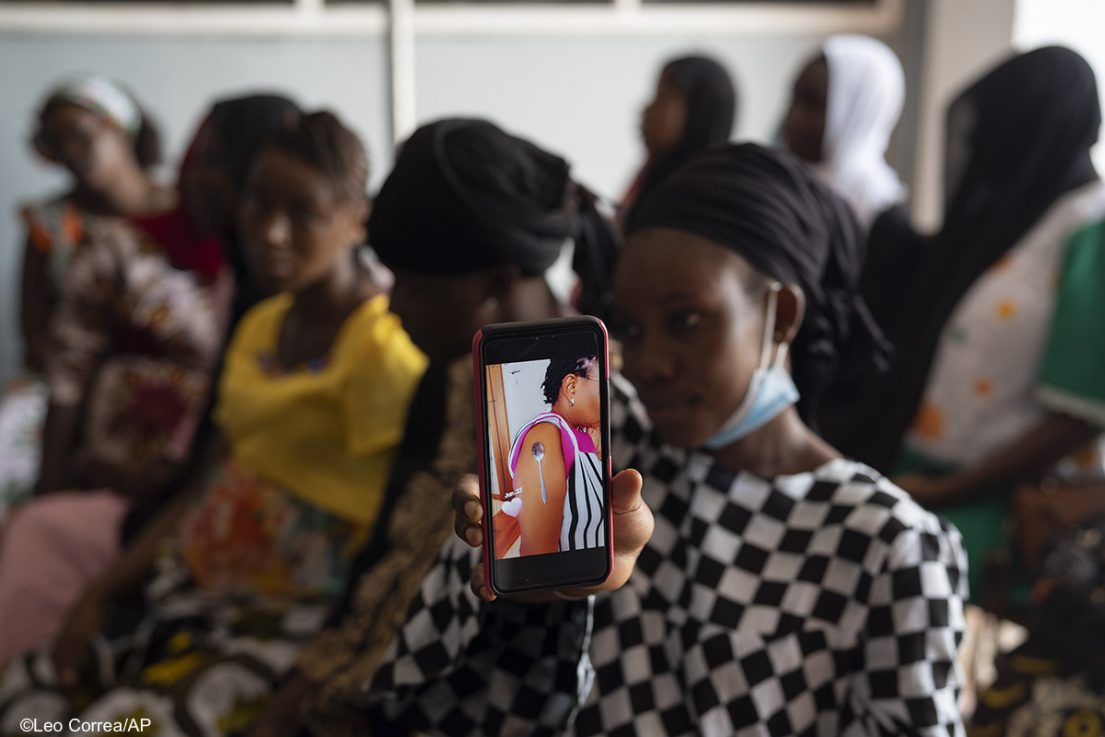
Oumie Nyassi shows a video circulating on the internet and that has been confirmed as fake news of a woman claiming she was magnetized after receiving the COVID-19 vaccine, in a doctors office at Serrekunda, Gambia hospital, Thursday Sept. 23, 2021. Nyassi, 24, said that she would get the vaccine only after delivering her baby. As health officials in Gambia and across Africa urge women to be vaccinated, they've confronted hesitancy among those of childbearing age. Although data on gender breakdown of vaccine distribution are lacking globally, experts see a growing number of women in Africa's poorest countries consistently missing out on vaccines. (AP Photo/Leo Correa)
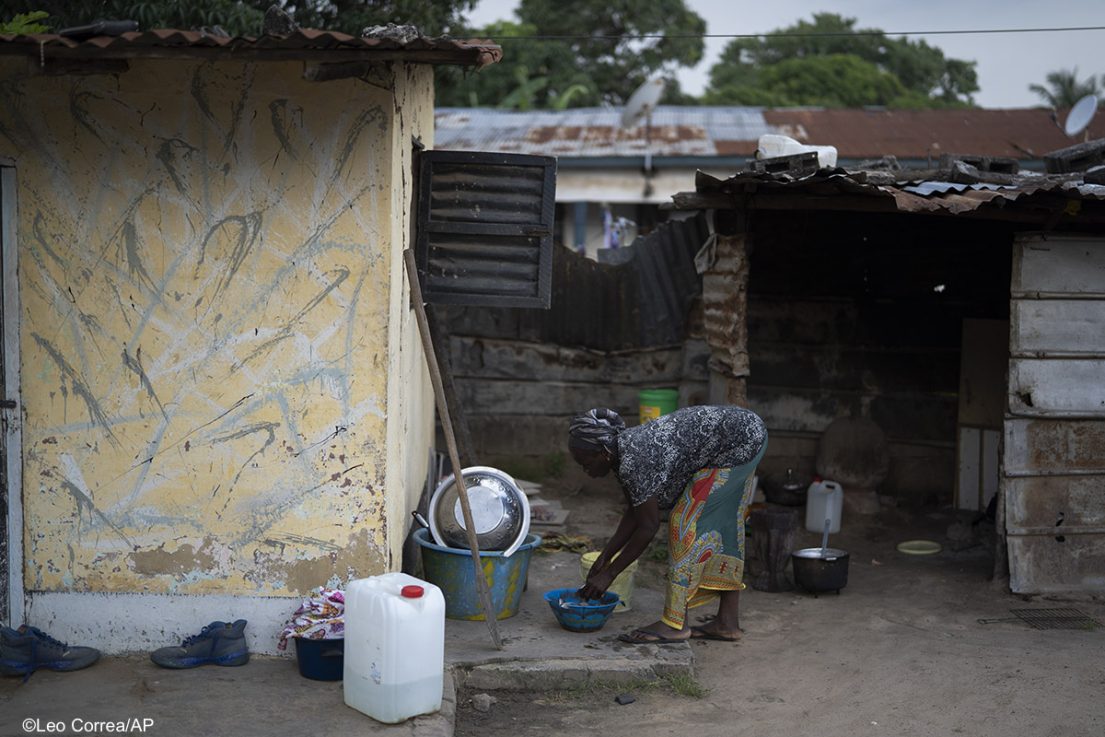
Lucy Jarju cleans the fishes after catching them from the mangrove, at the compound where she lives, in Serrekunda, Gambia, Saturday, Sept. 25, 2021. Jarju, 53-year-old, says she isn’t willing to be vaccinated against COVID-19 if it means she could miss even a day’s work. “If my arm gets heavy and I can’t go to the water, who will feed my children?” Her husband died a decade ago, leaving her alone to provide for her seven children. (AP Photo/Leo Correa)
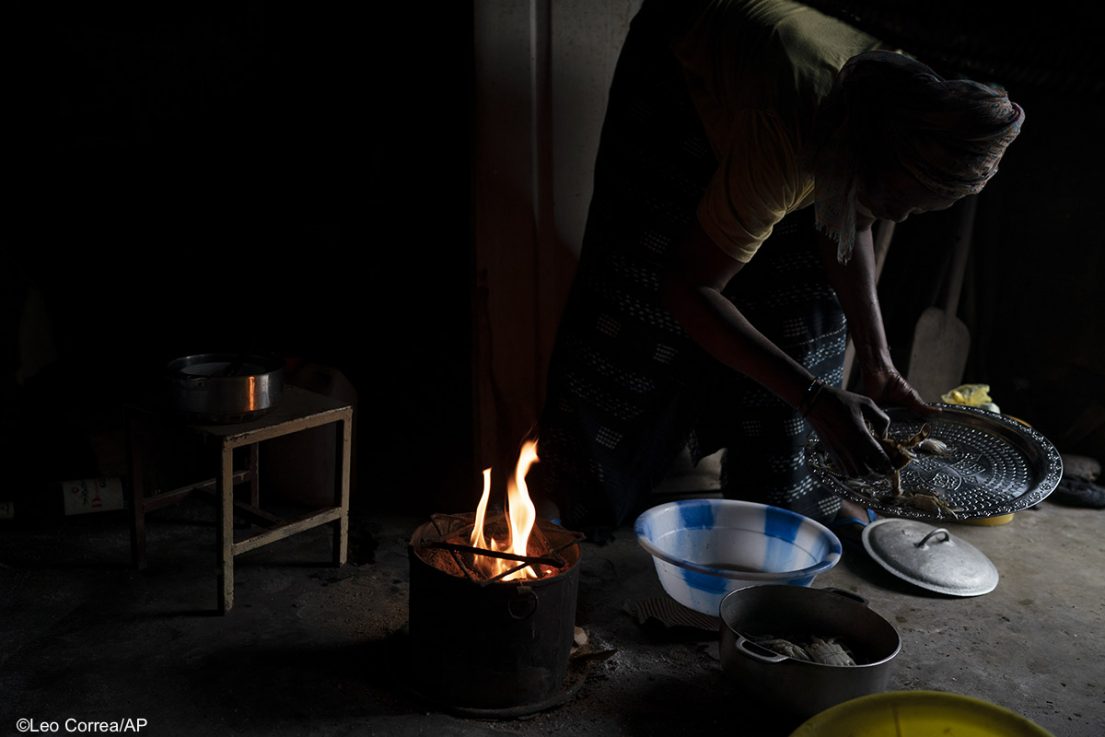
Oumie Sambou prepares the crabs after catching them from the mangrove, in the compound she lives in Serrekunda, Gambia, Saturday, Sept. 25, 2021. With a much older husband who can no longer work, she says that If she does not wake up and go to work at the water, she will not have anything for her five children. “I will not take the vaccine.", completes the, 50-year-old woman. (AP Photo/Leo Correa)
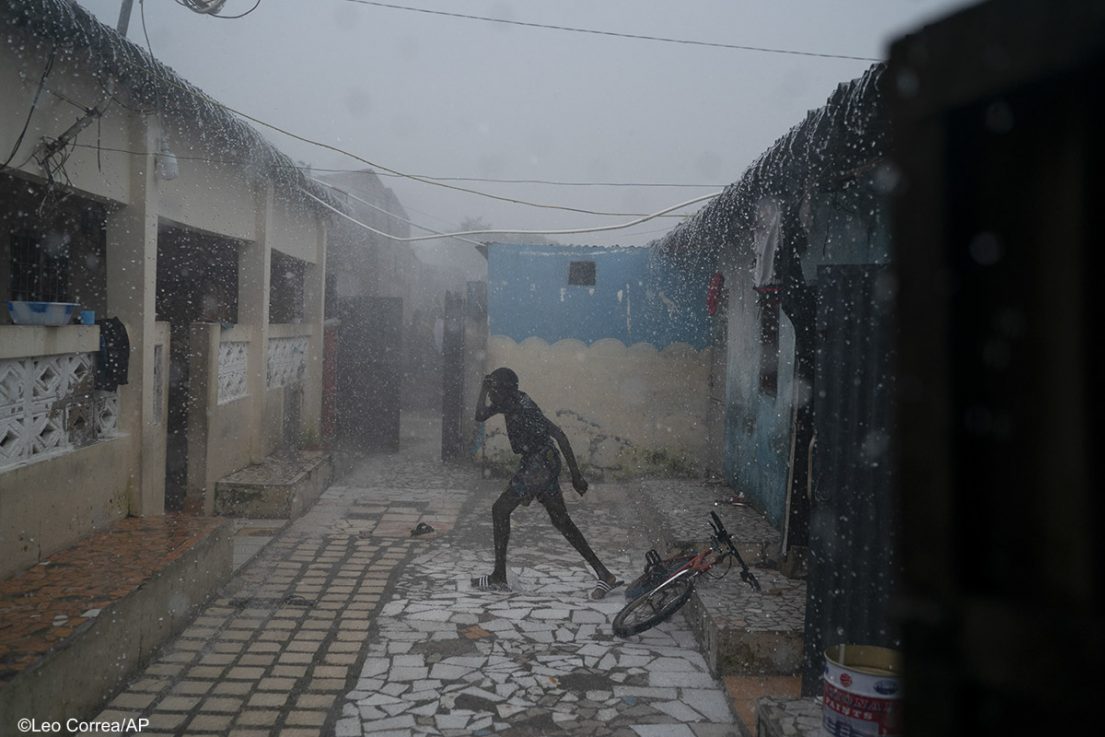
A boy leaves his bicycle under the heavy rain at the compound where lives Oumie Sambou in Serrekunda, Gambia, Saturday, Sept. 25, 2021. As health officials in Gambia and across Africa urge women to be vaccinated, they've confronted hesitancy among those of childbearing age. Although data on gender breakdown of vaccine distribution are lacking globally, experts see a growing number of women in Africa's poorest countries consistently missing out on vaccines. (AP Photo/Leo Correa)
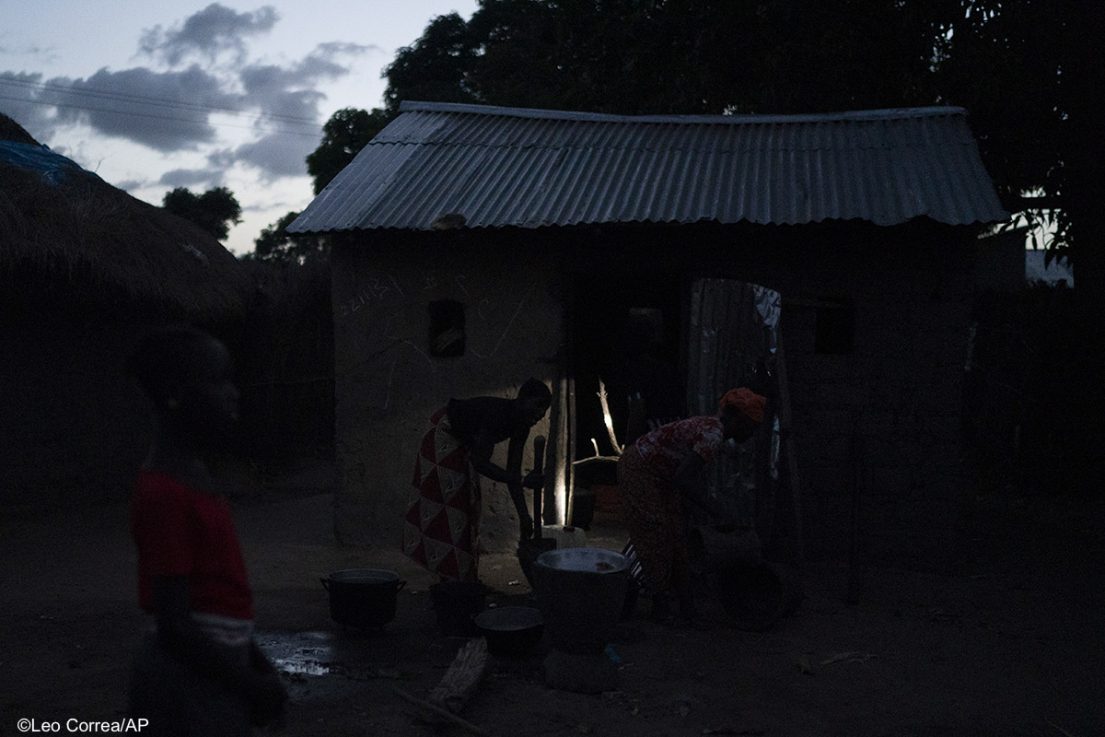
Women prepare the food during the dusk in their compound at the Sare Gibel village, Bansang, Gambia, Wednesday, Sept. 29, 2021. Misinformation about the vaccine against COVID-19 has flourished even in outlying villages where few even own smart phones. Here the power lines that dot the nearby road only carry electricity to town. Sare Gibel has a few solar panels, but daily life in the community is still dictated by the hours of daylight. (AP Photo/Leo Correa)
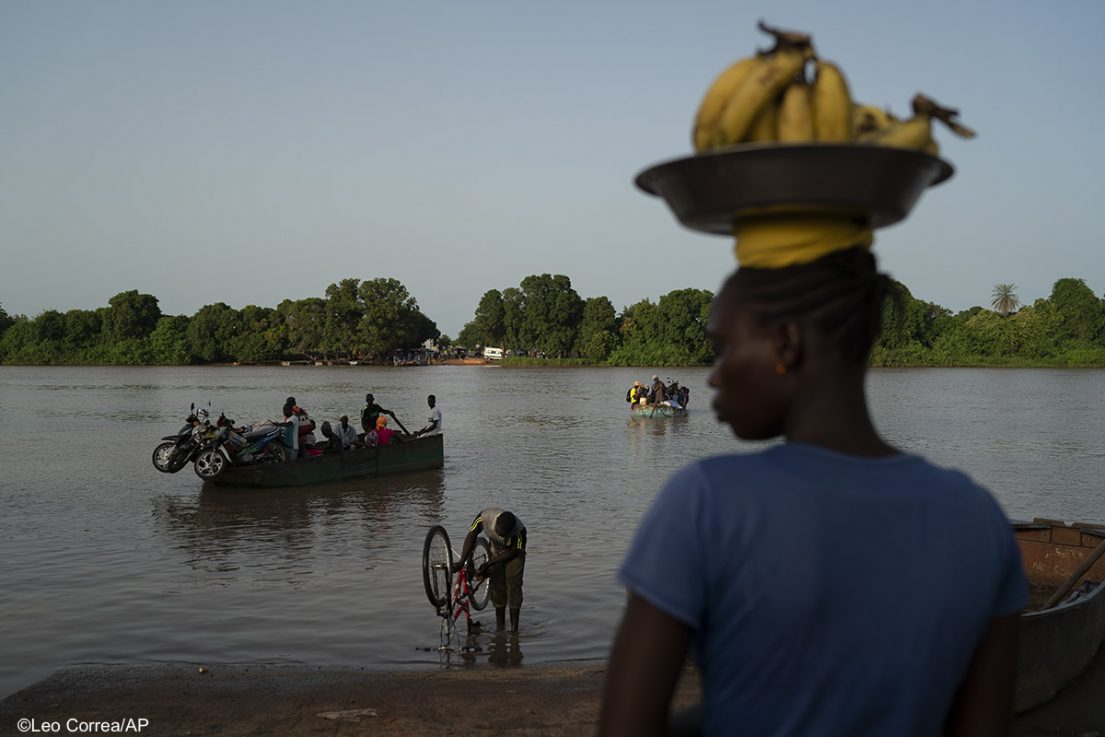
Carrying bananas for sale, a woman waits for the boat to cross the Gambia river in Bansang, Gambia, Tuesday, Sept. 28, 2021. As health officials in Gambia and across Africa urge women to be vaccinated, they've confronted hesitancy among those of childbearing age. Although data on gender breakdown of vaccine distribution are lacking globally, experts see a growing number of women in Africa's poorest countries consistently missing out on vaccines. (AP Photo/Leo Correa)
























